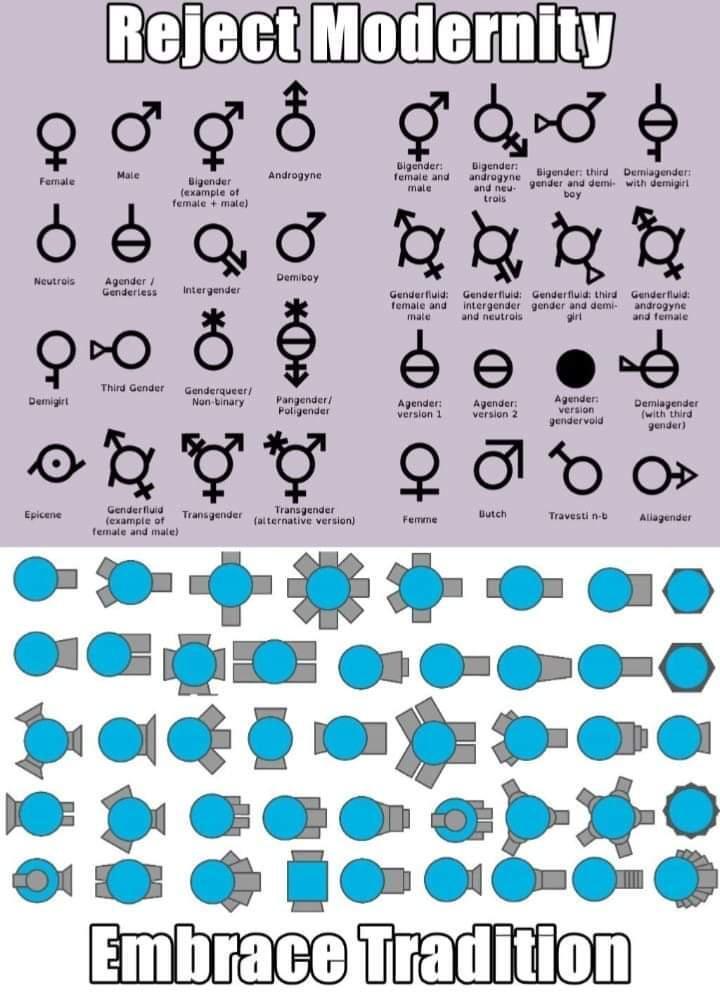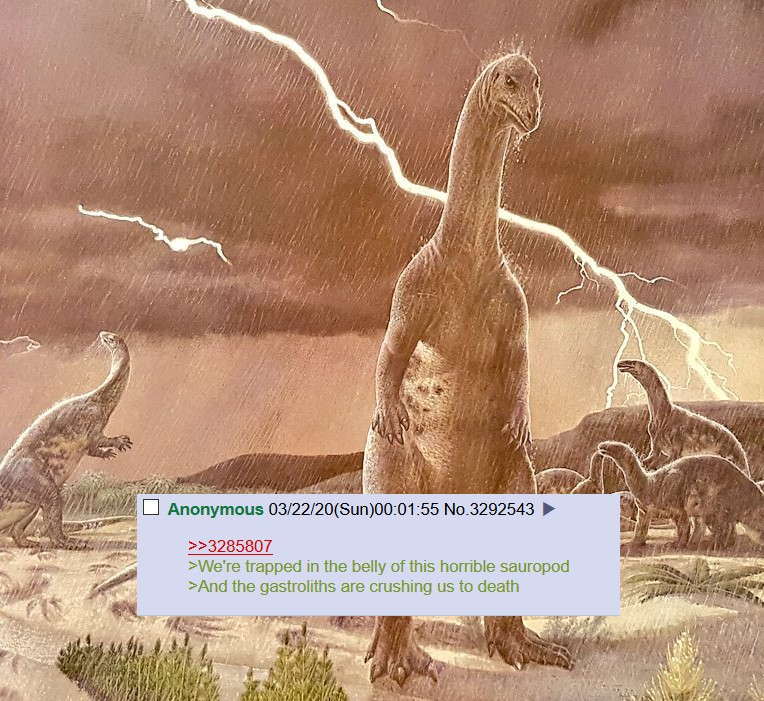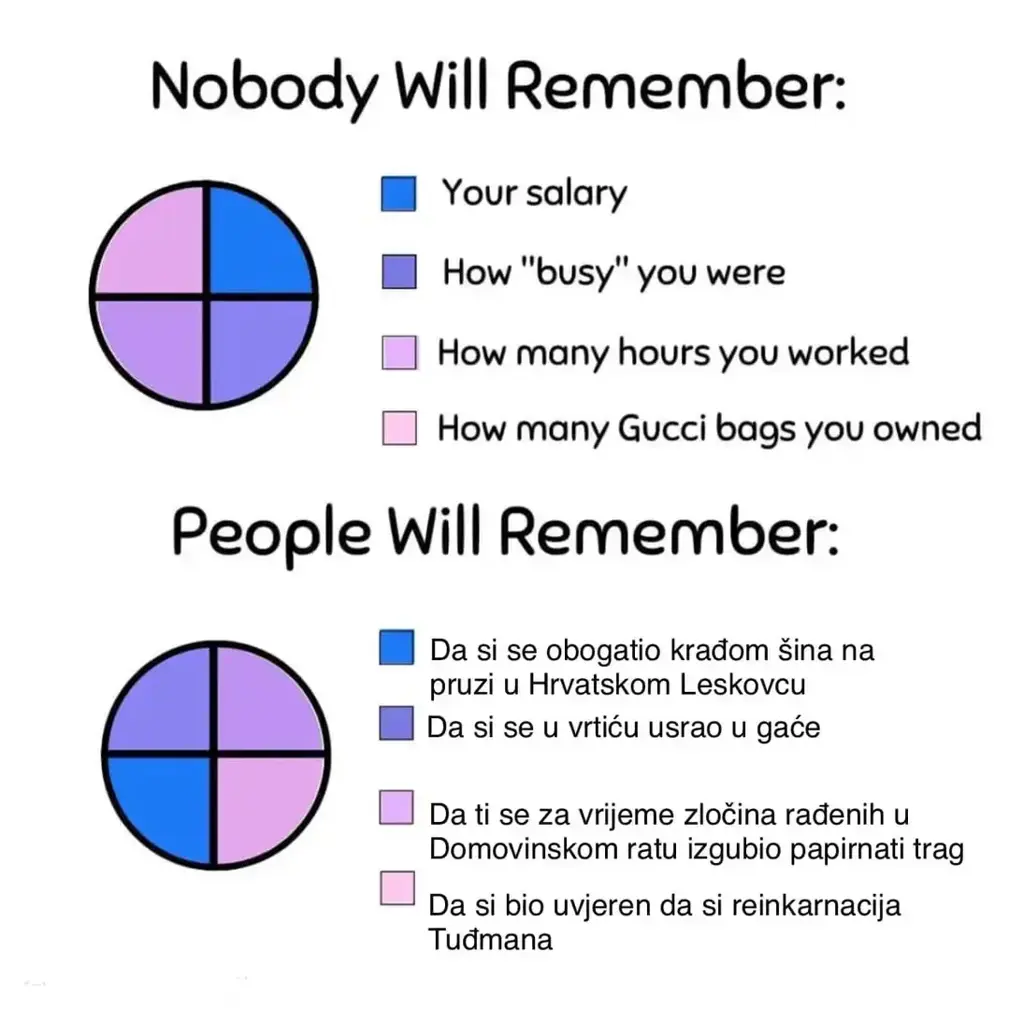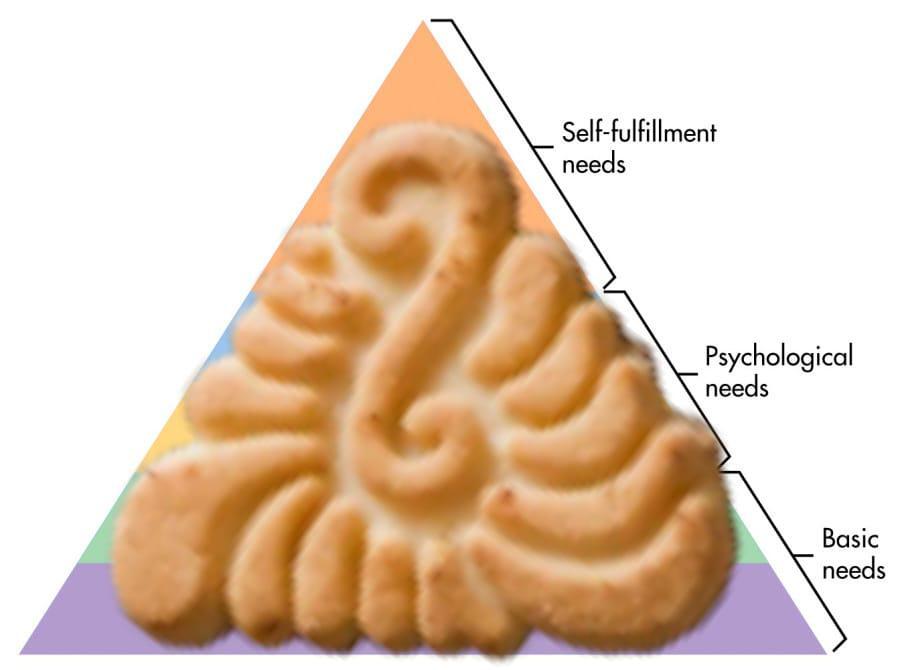Explaining society and economics to an American: "Burger is bad. Burger represents everything. Everything is bad."
Every traditional forum used to have limitations of that sort. Lemmy would probably be no exception, once (if) it becomes attractive to spammers and bots.
This may be a bit too far outside the nominal topic of the comm, so feel free to report it and let the mods decide if it can stay up. (I'd report it myself but apparently can't do it.)
The GIF in the OP is from the game Lemmings (1991).
you know what I’m talking about
But I literally don't. Well, I didn't but now I mostly do, since you explained it.
I get what you're saying with regards to the isolation, this issue has already been raised when many left-wing people started to leave Twitter. But it is opening a whole new can of worms - these profiles that post AI-generated content are largely not managed by ordinary people with their private agendas (sharing neat stuff, political agitation, etc.), but by bots, and are also massively followed and supported by other bot profiles. Much the same on Twitter with its hordes of right-wing troll profiles, and as I'm still somewhat active on reddit I also notice blatant manipluation there as well (my country had elections a few weeks ago and the flood of new profiles less than one week old spamming idiotic propaganda and insults was too obvious). It's not organic online behaviour and it can't really be fought by organic behaviour, especially when the big social media platforms give up the tools to fight it (relaxing their moderation standards, removing fact-checking, etc.). Lemmy and Mastodon etc. are based on the idea(l) that this corporate-controlled area is not the only space where meaningful activity can happen.
So that's one side of the story, AI is not something happening in a vacuum and that you just have to submit to your own will. The other side of the story, the actual abilities of AI, have already been discussed, we've seen sufficiently that it's not that good at helping people form more solidly developed and truth-based stances. Maybe it could be used to spread the sort of mass-produced manipulative bullshit that is already used by the right, but I can't honestly support such stuff. In this regard, we can doubt whether there is any ground to win for the left (would the left's possible audience actually eat it up), and if yes, whether it is worth it (basing your political appeal on bullshit can bite you in the ass down the line).
As for the comparison to discourse around immigrants, again I still don't fully understand the point other than on the most surface level (the media is guiding people what to think, duh).
I don't have even the slightest idea what that video is supposed to mean. (Happy cake day tho.)
In 2005 the article on William Shakespeare contained references to a total of 7 different sources, including a page describing how his name is pronounced, Plutarch, and "Catholic Encyclopedia on CD-ROM". It contained more text discussing Shakespeare's supposed Catholicism than his actual plays, which were described only in the most generic terms possible. I'm not noticing any grave mistakes while skimming the text, but it really couldn't pass for a reliable source or a traditionally solid encyclopedia. And that's the page on the best known English writer, slightly less popular topics were obviously much shoddier.
It had its significant upsides already back then, sure, no doubt about that. But the teachers' skepticism wasn't all that unwarranted.
I think the academic advice about Wikipedia was sadly mistaken.
It wasn't mistaken 10 or especially 15 years ago, however. Check how some articles looked back then, you'll see vastly fewer sources and overall a less professional-looking text. These days I think most professors will agree that it's fine as a starting point (depending on the subject, at least; I still come across unsourced nonsensical crap here and there, slowly correcting it myself).
I think that's not possible. Wikipedia collects as little user data as possible, and providing a different UX in different countries sounds like it would already be too intrusive in that regard.
As far as I've seen they only generated one example summary, which is linked in OP. It's not good, as Wikipedians have pointed out: https://en.wikipedia.org/wiki/Wikipedia:Village_pump_(technical)#The_Dopamine_summary
Amen. Like, I get the initial annoyance with webp but it doesn't even take this sort of essay to agree that it just is a good format. The only problem right now is that not all sites and software support it, but I hope that will be solved soon enough.
Thank you! This passage is again drawn from René Descartes' Meditations on First Philosophy, and it outlines his method of radical doubt as a means to establish certainty in knowledge. While the reasoning is carefully crafted and influential in the history of philosophy, it still contains a few logical fallacies or reasoning weaknesses that can be critically assessed.
🔍 Identified Logical Fallacies and Weak Reasoning:
1. Hasty Generalization
"Whatever I have accepted until now as most true has come to me through my senses. But occasionally I have found that they have deceived me, and it is unwise to trust completely those who have deceived us even once."
- Why it’s a fallacy: The fact that the senses occasionally deceive (e.g. in illusions, dreams, or misperceptions) does not justify rejecting them entirely.
- Type: Hasty generalization – concluding that because something is sometimes unreliable, it must always be unreliable.
2. False Analogy
"...it is unwise to trust completely those who have deceived us even once."
- Why it’s a fallacy: Comparing senses (which are not agents but biological faculties) to people who deceive is not a valid analogy. People deceive with intent; senses make errors unintentionally.
- Type: False analogy – treating unlike things as if they were meaningfully similar.
3. Slippery Slope (Metaphorical)
"Once the foundations of a building have been undermined, the rest collapses of its own accord..."
- Why it’s a fallacy: This implies that if some foundational beliefs are doubted, then all other beliefs must collapse, without demonstrating that all knowledge is entirely dependent on those foundations.
- Type: Slippery slope – assuming that undermining one part inevitably leads to a total collapse.
4. Begging the Question (Circular Reasoning)
"My reason tells me... I should withhold assent from [beliefs] that are not completely certain and indubitable."
- Why it’s questionable: Descartes is relying on reason to justify doubting everything else, including the faculties (like reason) he has not yet proven to be trustworthy. This risks begging the question, assuming the reliability of reason while attempting to prove everything else, including reason itself.
- Type: Begging the question – assuming what you're trying to prove.
5. Inconsistency (Recognized, Not Fully Resolved)
"Yet although the senses sometimes deceive us... that doesn’t apply to my belief that I am here, sitting by the fire..."
- Why it’s a fallacy: Here, Descartes briefly exempts ordinary sensory experiences (like feeling warmth, seeing paper) from radical doubt—despite having just declared that any doubt justifies withholding belief. He later corrects for this in the next meditation (introducing the dream argument), but within this passage, it’s a moment of inconsistency.
- Type: Special pleading or internal inconsistency.
✅ Summary Table of Fallacies
| Fallacy Type | Description |
|---|---|
| Hasty Generalization | Rejects all sensory data due to occasional errors. |
| False Analogy | Compares unreliable senses to untrustworthy people. |
| Slippery Slope | Claims that doubting foundations causes collapse of all beliefs. |
| Begging the Question | Uses reason to justify doubting everything, including reason itself. |
| Inconsistency / Special Pleading | Makes an exception for immediate sensory beliefs without justification. |
Conclusion:
Descartes' passage is methodologically rich, but from a logic and reasoning perspective, it contains:
- Several classic fallacies used to motivate extreme skepticism.
- Analogical and metaphorical reasoning that may be rhetorically persuasive but logically flawed.
- Self-referential assumptions that are philosophically problematic (and which he tries to resolve in later meditations).
Would you like a version of this reasoning revised to be more logically sound, or would you like help analyzing the next part of the Meditations?








Tbh a lot of the torrenting terminology is quite metaphorical and doesn't make sense without understanding all the mechanics. Seeding? Leeching? Ports? Clients? And even the central concept - "torrent"?